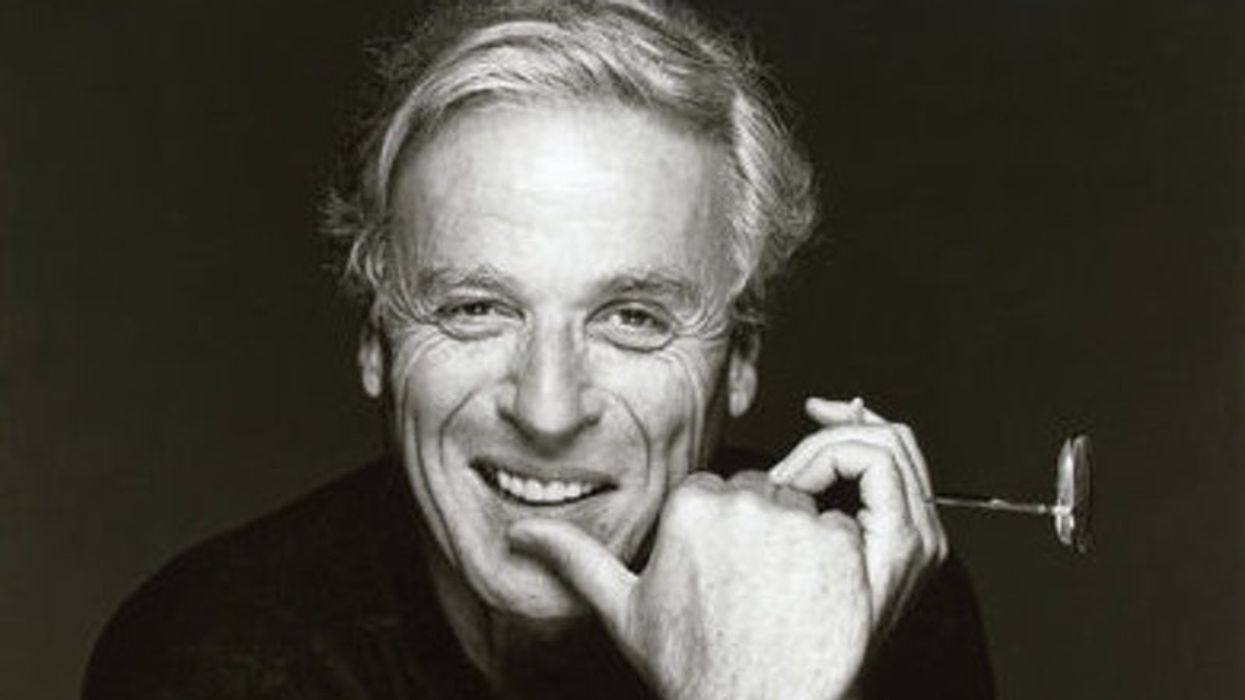William Goldman, Legendary and Prolific Screenwriter, Dies at 87
William Goldman, writer of 'Butch Cassidy and the Sundance Kid', 'All The President's Men, and 'The Princess Bride' has died at age 87.

Goldman's successful career spanned decades, a rarity for screenwriters in Hollywood. He won two academy awards and wrote one of the most beloved biographies about working in entertainment, "Adventures in The Screen Trade". It was in that book that he gave us perhaps the most honest and enduring quote about the place he made his career:
"Nobody knows anything... Every time out it's a guess..."
William Goldman's writing transcends one medium, having found success in many. He wrote original screenplays, novels, and adapted true stories and fiction for the screen. All with great success. In that regard as well as many others, he was truly one of a kind.
He wrote with great humor and deep pain. He wrote about the actual news and high fantasy. His heroes were mighty with the pen and sword.
There was no other William Goldman, and there will never be another.
Born in a Chicago suburb in 1931, William Goldman was raised in a Jewish family. His father Maurice Goldman was a successful businessman who fell prey to alcoholism and would commit suicide when William was in High School.
"Life is pain, anyone who says differently is selling something"
Goldman entered the army in 1952, and afterward began attempting to write novels and short stories. In his own words from a 2009 interview in the Guardian, "I was so programmed to fail. I had shown no signs of talent as a young man. I was an editor at the school literary magazine at Oberlin College, and I would anonymously submit my short stories. When the other editors - two brilliant girls - would read them they would say 'we can't possibly publish this shit.' And I would agree."
Never the less, he would go on to publish five novels and eventually to all our benefit, get into screenwriting.
"...They would say 'we can't possibly publish this shit.' And I would agree."
He researched his first original screenplay, Butch Cassidy and The Sundance Kid for eight years, and he sold it for $400,000. An unprecedented price tag in the late 1960's.
The movie, starring Robert Redford and Paul Newman, is considered by many to be one of the greatest ever made. Goldman won his first Oscar, and the film was also a massive commercial success.
He then would write the novel The Princess Bride in 1973. Of course, he wrote the screenplay as well but it would be roughly a decade before the movie version was made.
"This is my favorite book in all the world, though I have never read it"
He wrote Marathon Man and The Stepford Wives among others.
His adapted screenplay of All The President's Men was another unforgettable contribution to our culture, giving us a screen version of Bob Woodward and Carl Bernstein's cracking of the Watergate scandal. Even if you aren't familiar with the story and the movie, echoes of that moment in history and Goldman's treatment of is live with us to this day.
"Follow the money..."
Few screenwriters manage to survive in Hollywood long enough to produce multiple all-time classics. But by the early 1980's Goldman had already written a few. And he wasn't done yet.
Rob Reiner would bring The Princess Bride to the screen in 1987, an instant classic and quotable favorite for a new generation. Already two decades after Goldman sold Butch Cassidy...
He also adapted Stephen King's "Misery" into one of the most critically and commercially successful horror/thrillers of its time. The script it a true "swiss watch" when it comes to understanding and mastering the screenwriting craft. He was also an uncredited script doctor on many popular films through the 1990's.
Of his work, Goldman said, "I don't like my writing. I wrote a movie called Butch Cassidy and The Sundance Kid, and I wrote a novel called The Princess Bride and those are the only two things I've ever written, not that I'm proud of, but that I can look at without humiliation."
Goldman said nobody knows anything, but it seems for certain that Goldman knew one thing very well: how to tell a good story. Perhaps his humility despite all his nearly unparalleled success was one of the keys to such a long career. Goldman didn't just write movies that we remember, that won awards, and that made money. He wrote movies that live in our hearts forever, and characters who belong in the pantheon of great archetypes.
He made screenwriting seem awesome and approachable and for that screenwriters everywhere will never forgive him.











